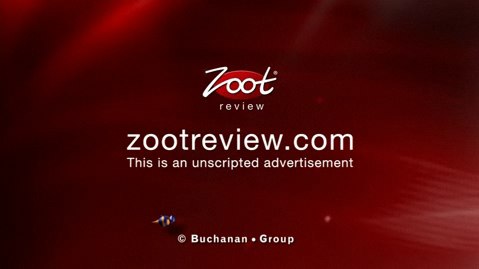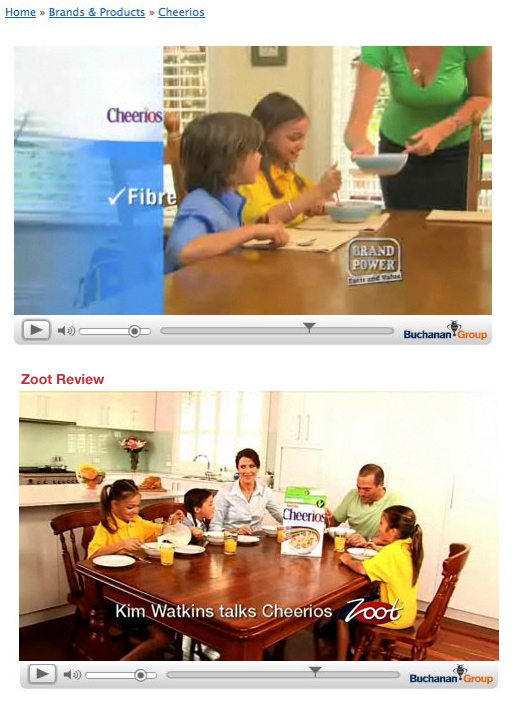
this is an unscripted celebrity endorsement
When I wrote about digital video recorders killing TV advertising, one of the comments (thanks Doingwords) suggested that there will be an increase in “home shopping” type of advertising where the ads are extended into infomercial lengths. Given this is a trend happening in the US too, watch E! channel Australia to see the millennial versions of the Ginsu knives, the Ab Blaster, the Steam Buddy and the Ped Egg (ewww!). As bad as these ads are for content, at least they don’t pretend to be something else.
On free to air, however, the con jobs are airing in prime time. Australia has 2 major “third party authorities” in TV advertising, Zoot Review (“this is an unscripted advertisement”) and Brand Power (“helping you buy better”), both owned by the same company. I was at the taping of the last episode of the Gruen Tansfer when the panel hooked into Kim Watkins for appearing with fake (not her real) children in one of the Zoot Review celebrity infomercials. I find the Georgie Parker “roving journalist” style hilarious because its so fake, in what’s really just a celebrity product endorsement spot.
Whilst writing this post, I struck advertising deception paydirt. Cheerios appears on both Zoot Review and also on Brand Power. Guess what? Kim Watkins “fake daughter” in the Cheerio’s Zoot Review also stars in the Cheerios Brand Power “spot”. Come on!

same female child actor stars in Cheerios fake third party advertising
Both Zoot Review & Brand Power are built on the illusion of being “objective” third parties (i.e. not directly associated with the advertiser). Brand Power provides
Under the guise of being an independent body, The Buchanan Group take cash from brands and ad agencies and produce infomercials but pretend to be “editorial” (i.e. not associated with the brand, and are there to empower consumers through customer advocacy). This is unlike real customer advocates such as Choice, who compare products in the same category for genuine results.
It’s not so much that Brand Power manages to sneak through the Free TV Infomercial Substantiation standards – I’m sure the emphasis on rational information gets the ads through. What irritates me is the positioning of Brand Power as the independent voice “helping you buy better”.
Brand Power is big in Canada too, and a post from One Degree in 2007 has similar issues that I do, and puts forward:
this is the type of con job that could only exist in the traditional media and could not be successful online
What’s really sad/scary is Brand Power is now successfully online, with “real people” feedback/statements appearing on the site as “Latest reviews”. On some level, consumers have bought into the Brand Power customer advocacy and are now submitting their reviews in good faith. How much do the consumers (mainly women) believe they are actually participating in an open forum? And it purports to being an open forum yet you wonder why there are only positive comments? Is it because they are being “bribed” through promotions they might win by participating in a positive way?
It’s good old fashioned “leading the customer to believe” through association and assumption. There is nothing authentic about either the television advertising for Brand Power or Zoot Review or their associated websites. Brand Power is dishonest in its positioning of customer advocacy, and talks around the brands paying for the service. Given the level of brands paying for the “Brand Power” service it must be working on some level, although most of the brands are already advertising often on tv with creative ads. Are overly cautious brand managers hedging their bets? What do you think of alleged third party advocates like Brand Power, Zoot Review and MediFacts? Is it dishonest to do it on tv as much as it is online? What’s your view?